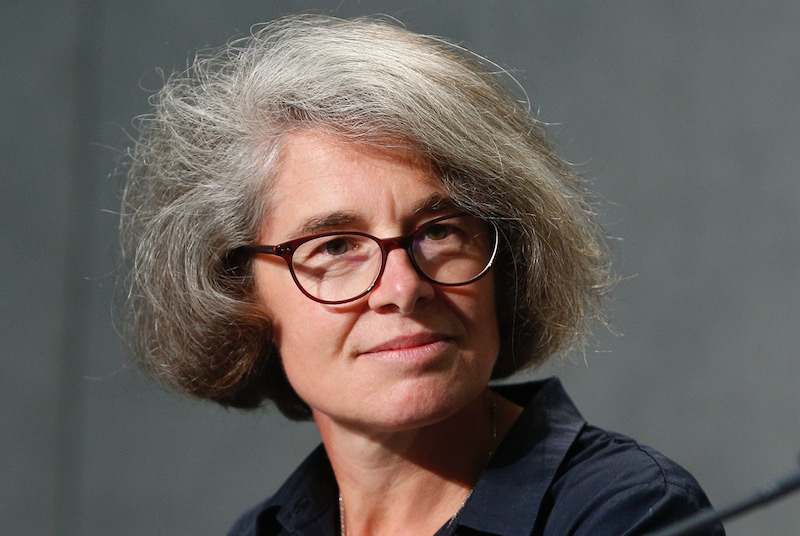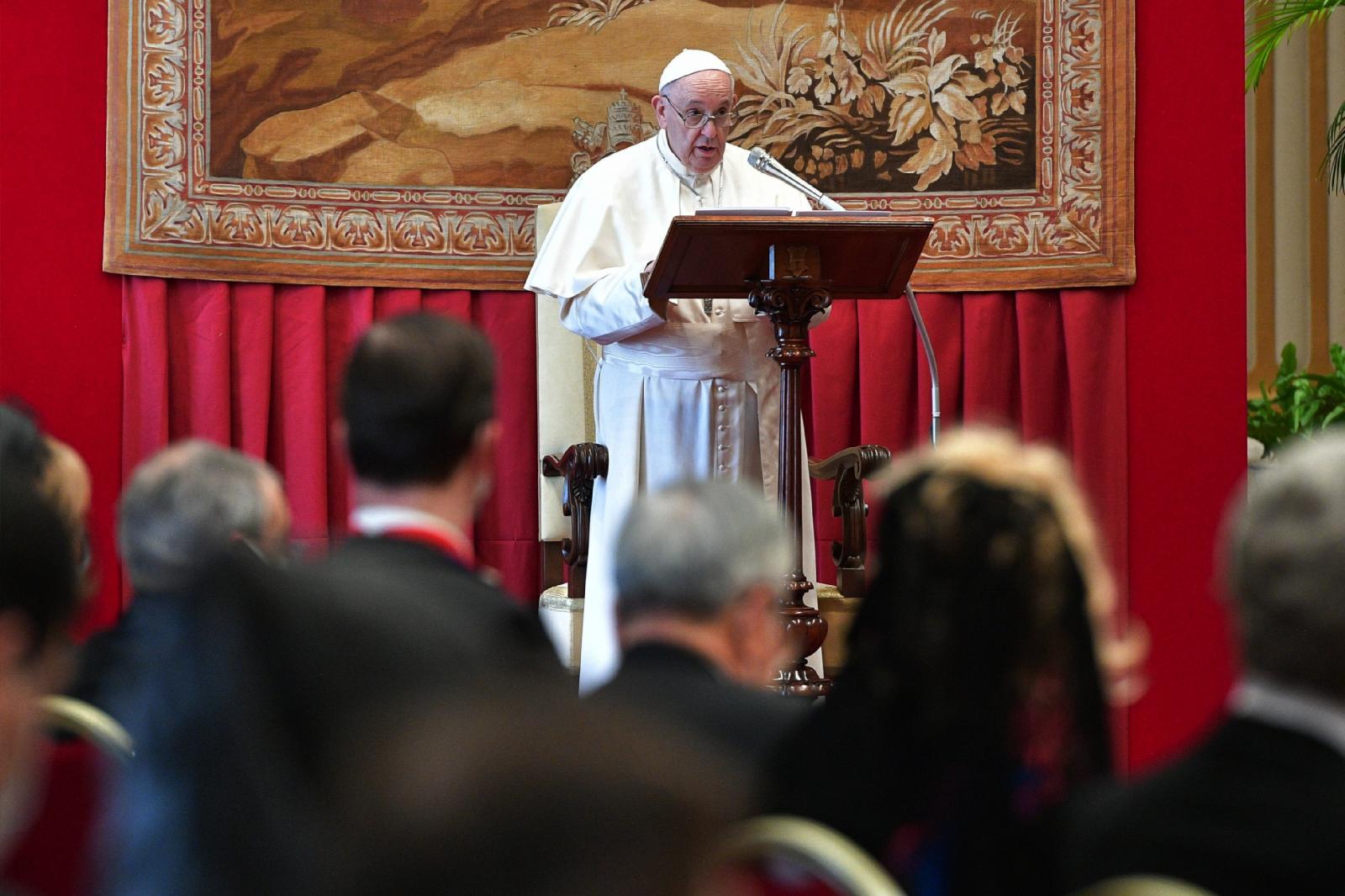Pope Francis is calling for Myanmar’s military leaders to release political prisoners while condemning the “brusque interruption” of democracy caused by last week’s military coup.
The 84-year-old Roman pontiff made his remarks during this morning's annual “state of the world” address to ambassadors from across the world in the Vatican, who represent the 183 states that have diplomatic relations with the Holy See.
“The path to democracy undertaken in recent years was brusquely interrupted by last week’s coup d’état,” the Pope said during his speech which took place in the Hall of Blessings inside the Apostolic Palace.
“This has led to the imprisonment of different political leaders, who I hope will be promptly released as a sign of encouragement for a sincere dialogue aimed at the good of the country.”
Francis’ appeal came as demonstrations took place across Myanmar against the military’s removal of Aung San Suu Kyi, the democratically elected leader of the country. And yesterday, the Pope urged Myanmar’s leaders to work for the common good and “harmonious and democratic coexistence” following the Sunday Angelus.
In 2017, the Pope undertook the first papal visit to Myanmar, and has said that since then it is a country which he has “carried in my heart with so much affection”. During that trip, Francis saw first-hand the power the military still held in the country, despite the transition to democracy at the election of Suu Kyi as State Counsellor. Upon arrival in Yangon, the Pope’s first meeting was an unscheduled “courtesy visit” from General Min Aung Hlaing and his aides.
|
|
Following the Burma coup, Cardinal Charles Bo, the Archbishop of Yangon, has encouraged the pro-democracy protestors in a series of tweets, a position that has been reinforced by the Pope’s remarks.
Francis’ stance on Burma has added impact given that Vatican has full diplomatic relations with Myanmar while it was the Pope who in 2015 gave Cardinal Bo his red hat, and making him the first cardinal in the country’s history. Bo, like the Pope, is calling for dialogue in the country and has warned against the international community imposing sanctions on Myanmar.
Although he did not mention Myanmar explicitly, Francis used his speech to warn against the use of economic sanctions which he says “affect mainly the more vulnerable segments of the population rather than political leaders”.
During his lengthy and wide-ranging speech, the Pope spoke about the threat to democracy across the globe since the outbreak of the Covid-19 pandemic. He pointed out that even countries with a “long democratic tradition” are showing an “inability” to find common solutions to problems.
“Vitalizing democracies is a challenge in the present historic moment, one that directly affects all states, whether small or large, economically advanced or in the process of development,” Francis said.
“The democratic process calls for pursuing the path of inclusive, peaceful, constructive and respectful dialogue among all the components of civil society in every city and nation. The events that in various ways and contexts, from East to West, have marked this past year also, as I mentioned, in countries with a long democratic tradition, have made clear how inescapable is this challenge, and how we cannot avoid the moral and social duty to address it positively.”
The Pope added: “The development of a democratic consciousness demands that emphasis on individual personalities be overcome and that respect for the rule of law prevail.”
Covid-19, Francis stressed, has revealed “a world that is seriously ill”, and has sparked health, political, economic-social and environmental crises. Nevertheless, the Pope said the crises offer opportunities for “a more humane, just, supportive and peaceful world.”
During his address, the Pope looked ahead to the United Nations Climate Change Conference, Cop26, hosted by the UK and taking place in Glasgow, and which he hopes “will lead to effective agreement in addressing the consequences of climate change.” Francis added: “Now is the time to act, for we are already feeling the effects of prolonged inaction.”
The Pope also warned about the effects of lockdowns and the closure of schools was having on the education of young people which he said had revealed inequalities while increased time on online made children vulnerable to online criminality.
“The pandemic, which forced us to endure long months of isolation and often loneliness, has brought out the need of every individual for human relationships. I think before all else of those students who were unable to attend school or university regularly,” Francis said.
“We are witnessing a sort of ‘educational catastrophe’ to which we must react for the sake of generations to come and for society as a whole.”
At the end of his speech, the Pope greeted the ambassadors individually and in a socially distanced fashion. Among those present was the UK Ambassador to the Holy See, Sally Axworthy, who has spoken about the event.



 Loading ...
Loading ...